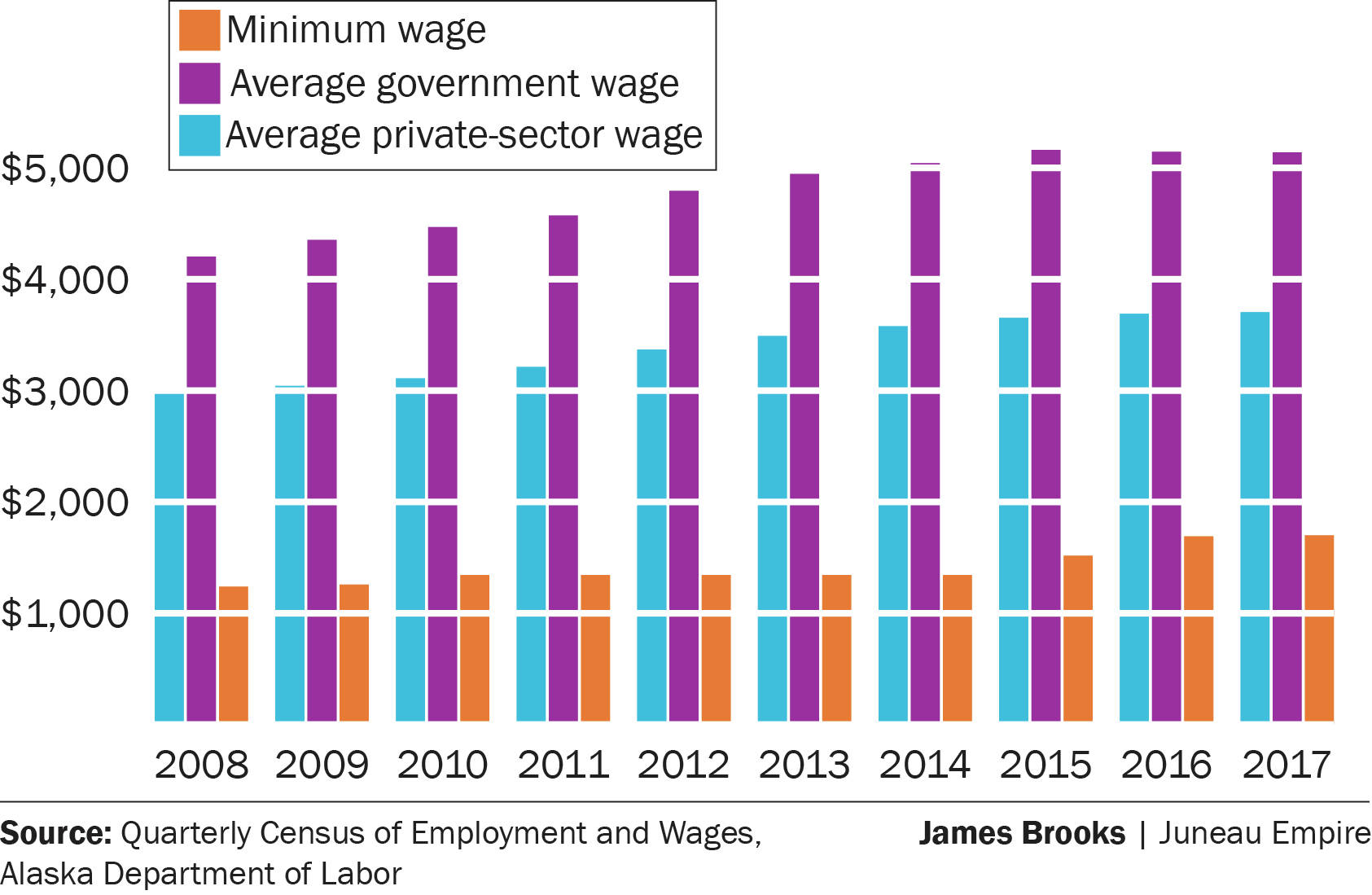Alaska’s ongoing recession has coincided with a plateau and decline in wages paid to Juneau workers, according to figures released by the Alaska Department of Labor and Workforce Development.
The 2017 census of employment and wages, released this month, shows Juneau’s average public-sector and private-sector wage declined from 2016. The average wage has remained flat at best since the onset of the recession in 2015.
Juneau has always seen a wide wage gap between the average state job and the average private-sector job, but that gap has narrowed slightly in the past three years. According to the new figures, the state’s average government worker now earns $5,139 per month, down from $5,209 per month in 2015. In the meantime, the average private-sector wage has risen from $3,686 per month to $3,704 per month. All figures have been adjusted for inflation and represent real gains or declines.
Wages are an important measure of economic health, just as employment figures are. If the number of jobs remains flat while wages decline, that indicates that high-paying jobs are being replaced by low-paying jobs.
In Juneau’s case, the census shows there were 17,709 people employed in Juneau on average each month of 2017. Combined, those people earned almost $904 million.
Both figures are down from last year. The capital city lost about 200 jobs between 2016 and 2017, and total earnings declined by about $8 million. Employment was nearly flat between 2015 and 2016.
The census shows the public sector accounted for 59 of those lost jobs; losses at the state level were somewhat compensated by increases in local government employment and federal employment.
On average, federal workers were the highest paid public-sector workers, with an average wage of $7,934 per month. In the private sector, miners were the best-paid employees, with an average wage of $8,682.
• Contact reporter James Brooks at jbrooks@juneauempire.com or 523-2258.

